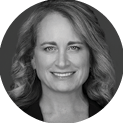
C.S. Lewis is credited with saying, “You are never too old to set another goal or to dream a new dream.” The sentiment is particularly fitting for the field of ophthalmology today.
At the outset of each year, we ophthalmologists routinely face uncertainties surrounding a proposed Medicare fee schedule and potential cuts to reimbursements. The annual cycle has become a fundamental aspect of our professional reality, and it is marked by anticipation, anxiety, advocacy, alteration, and eventual acceptance. This year was especially challenging, with the future of MIGS reimbursement at risk due to problematic policies proposed by five Medicare administrative contractors. Set to begin on January 29, the policies threatened patient access to established treatment practices and care strategies. The policies also had the potential to hinder innovation, affecting not just glaucoma treatment but also the advancement of medicine. Fortunately, through the concerted efforts of physicians, organizations, industry, and patient advocates, the proposed changes were rescinded by all five Medicare administrative contractors. This maintains patient access to a variety of crucial glaucoma treatments and underscores the importance of a united response when patient health and safety are at risk.
Navigating the complex terrain of regulations and reimbursement is a formidable challenge. We ophthalmologists are adopting various practice models in an effort to navigate financial uncertainties and elevate patient care. Private equity investments in our field and the consolidation of practices are significant trends.
Some of us continue to find success in private, physician-owned practices. Concierge medicine, however, is gaining traction as an alternative model that is characterized by a smaller patient base and a greater level of personalized care. This practice model can enhance patient-surgeon relationships, provide more comprehensive care, and circumvent the limitations and unpredictability of traditional insurance-based models.
I cannot help but recall the words of philosopher Søren Kierkegaard: “Life can only be understood backwards; but it must be lived forwards.” We must adapt to changes in our field by reflecting on the past but also keeping abreast of technological advances and evolving patient expectations. Armed with a willingness to embrace change and a deep commitment to our patients, we position ourselves as visionaries shaping the future of eye care.




